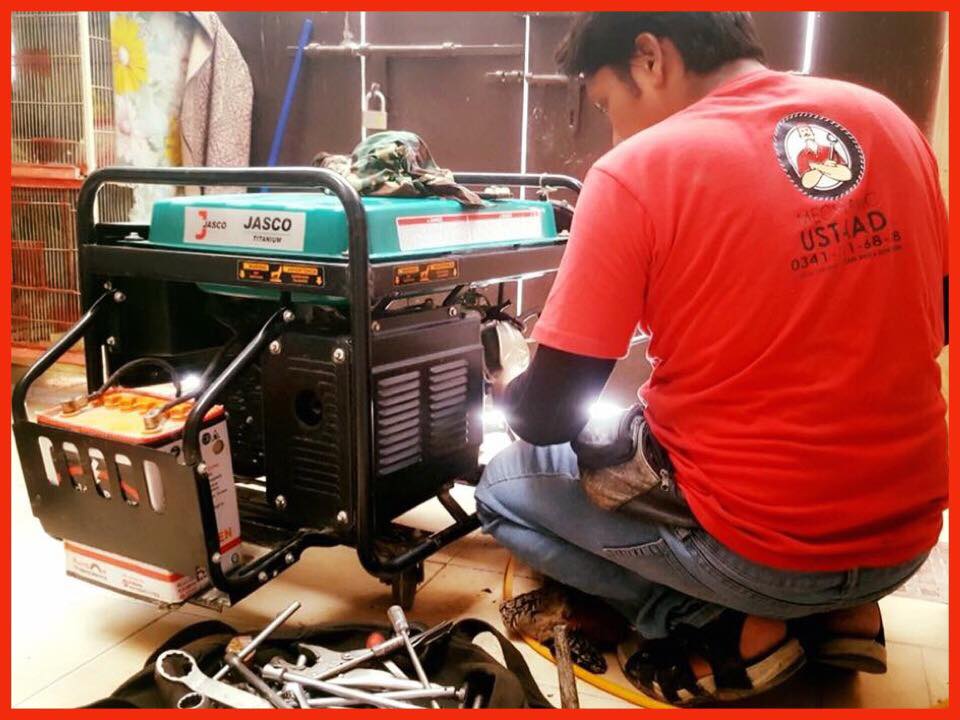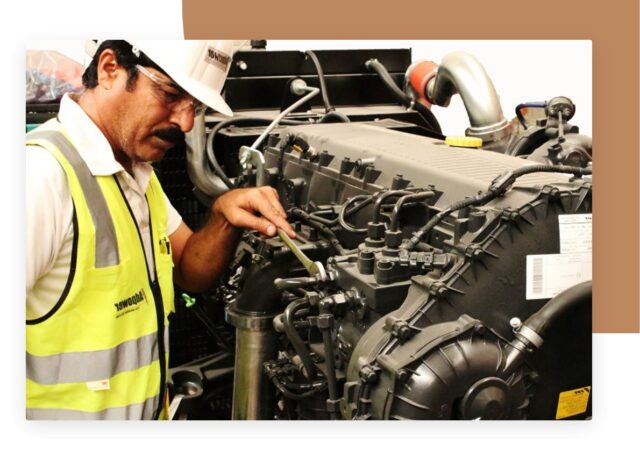Blackouts, brownouts permanent problems. These power outages can be devastating to businesses and homes. They can eat up employees’ time and disrupt the equipment that protects people in extreme temperatures and cold. Most dangerous is when power interruptions occur in medical procedures that are electrically powered. This is where electric generators are needed. This article will learn about different types of generators and generator maintenance.
What can a generator do?
Electric generators are lifesavers. They are power sources that back up fuel supply to electrical energy, typically gasoline, diesel, or propane. They are the primary source of electricity during power interruptions. The energy used is utilized to power the external circuit. In contrast to standby generators, the following generators aren’t permanently installed in one location. Therefore, they are easy to begin.
Types of generators
- Portable
- Inverter
- Standby
Despite their different characteristics in design, all generators must undergo similar maintenance to ensure their long-term reliability, and the same security measures are required to minimize the risks they pose.
Portable Generators
Portable generators run on gas or diesel fuels and provide temporary electricity. The following are some features to keep in mind when choosing this kind of generator:
- Make use of a combustion engine to transmit electricity.
- It can be connected to electric appliances and tools using its sockets.
- Applicable in remote locations.
- It’s powerful enough to run a television or freezer, fridge and.
- The engine must be running at 3600rpm to produce the standard 60hz current.
- Make use of a governor for controlling your engine’s performance.
- Lights and tools can be powered by electricity.
Inverter Generator
Additionally, unlike other generators, it uses an inverter that converts AC energy to DC power.
Read More: Furnace Troubleshooting: Seven Common Problems and Simple Solutions In Detail
- Rely on the latest technology in magnets.
- Makes use of advanced electronic circuitry.
- It is a three-phase process that produces electricity.
- It is more efficient in energy consumption since the engine’s speed can be adjusted depending on how much power is required.
- This AC can be adjusted to any voltage or frequency using the appropriate equipment.
- It tends to be small and light.

Generator Standby
The standby generator can be described as an electric system that works with an auto transfer switch that instructs it to turn devices up in the event of power outages. Some features to look out for in these types of generators are below:
- It is automatically operated.
- The power supply cannot be changed.
- Two components are included: a standby generator and an automated transfer switch.
- It will run using the fuel currently used in the facility or at home.
- The engine is driven by internal combustion.
- The sensor detects the loss of power within minutes and starts the electricity so that loss of control is felt only for a brief period.
- Performs self-tests every week to respond correctly to power outages.
- Monitors power supply constantly.
Generator Maintenance
Maintaining the generator is an exact process across the three kinds of engines. It is crucial to adhere to the maintenance schedule that the manufacturer provides for each generator type. A typical maintenance routine is to conduct a general inspection. Inspections involve inspecting for leaks, assessing coolant and oil levels, glancing at the hoses and belts, and looking at the battery terminals and cables. A regular oil change is essential since the oil needs to be inspected regularly. The frequency of oil changes depends on the maker, the often generator is utilized, and the environment in which you work. For diesel generators, oil changes are typically recommended every hundred hours.
Maintenance of the generator will require:
- Annual fuel cleaning and filtering, like diesel fuel, degrades quickly. After a couple of weeks of use, diesel fuel begins to degrade due to the contamination of microbes and water, which can cause clogging of fuel lines and filters. Cleansing the energy involves applying biocides every year in all generators, except the standby generator, which attracts moisture.
- The cooling system must be maintained, monitoring the coolant level at regular intervals. This is to be performed during times of shutdown.
- Verifying the battery’s power is particularly important for standby generators since batteries are the primary source of failure. Check that your batteries are strong and sufficiently charged to last long enough to avoid startup issues for the generator.
- Regular testing is a way to know the state of the battery. Testing includes monitoring the electrolyte level and their specific gravity. The batteries themselves must be free of dirt.
Maintaining and taking care of generators
In addition to the top methods described above, reducing your generator’s stress once per week for 30 minutes under load. This will recharge the battery, eliminate the excess moisture, lubricate and clean the engine, and remove foil and fuel. Any pieces that are loose on the generator should be securely tucked away. Keep the records of tests and inspections to ensure that you conduct future inspections and scrutinize them. The information you record will help you stay in the loop regarding the generator’s status.
Buying a generator cover at your neighborhood department shop is the ideal solution to keep your portable generator clean. These covers protect your portable generator and may have extra features like weatherproofing or water resistance. Remove them before using your generator to prevent overheating because they also serve as insulation.
Advantages of Generators
- A reliable source of power: Generators provide a reliable source of electricity during power outages, making them ideal for emergencies. They can power essential equipment, such as refrigerators and lights, allowing people to continue normal activities even during power cuts.
- Portable: Generators come in various sizes and can be easily transported, making them ideal for outdoor activities, such as camping and construction sites.
- Fuel efficiency: Modern generators are designed to be fuel-efficient, allowing users to get more power with less fuel, saving both time and money.
Disadvantages of Generators
- Noisy operation: Generators can be noisy during operation, which can significantly inconvenience people living near them.
- Maintenance: Generators require regular maintenance, including oil changes, air filter replacements, and fuel system cleaning. Failing to maintain a generator can result in poor performance and reduced lifespan.
- Limited power output: Generators have limited power output, which may not be enough to power large appliances and machinery. Multiple generators may be required in these cases, increasing cost and maintenance requirements.













